
Scott Merritt
Looking for Signs
by Anil Prasad
Copyright © 2003 Anil Prasad.
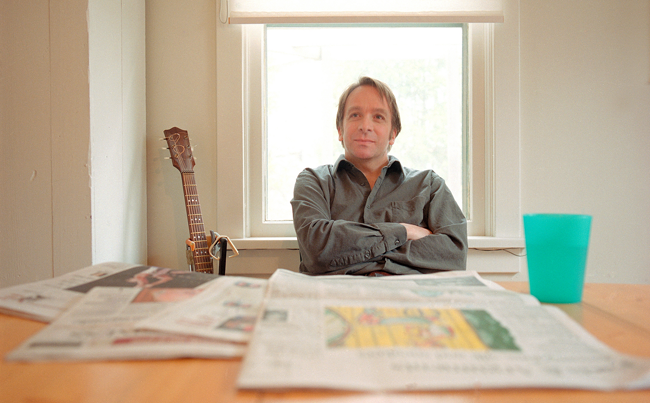
When Canadian singer-songwriter Scott Merritt bowed out of the spotlight in 1990, many were concerned the decision was permanent. It was particularly perturbing given that his fourth release, 1989’s Violet and Black, was one of the most meticulously crafted and brilliantly executed collections of expansive pop released during the decade. Vastly underrated, the moody disc explored the post-industrial reality of Merritt’s hometown Brantford, a small city in Ontario, Canada struggling for relevance and understanding in a rapidly transforming global culture and economy.
The entirety of the ‘90s passed without a drop of new material from Merritt, leaving his fans with several unanswered questions. Was he simply content with letting Violet and Black serve as his last artistic statement? Was he disgusted with the music industry? Had he found something more interesting to do with his life? The truth, as it often does, lay somewhere in between.
He found himself in a contractual entanglement with I.R.S. Records, the now-defunct label that released Violet and Black. The legal mess prevented him from recording for a long time, but when the situation arouse, he was already weary of the music industry’s machinations anyway. However, he didn’t necessarily go gently into that good night.
Merritt continued with a career in music on his own terms. He became a sought-after producer, working with the likes of Kim Deschamps, Fred Eaglesmith, Grevious Angels and Meg Lunney. He also performed at the odd live gig, revealing new songs and insights to the faithful. Perhaps most importantly, he spent a lot of time with friends and family, ensuring the connections many professional musicians sacrifice for their careers remained intact.
Fall 2002 saw Merritt, 45, return to the public eye with a bright, upbeat new record titled the detOUr home. The album is a personal voyage that explores the spirit of Merritt’s youth — in particular, his days spent in the small lakeside towns of Port Dover and Long Point, Ontario during the late ‘60s and early ‘70s. In contrast to Violet and Black’s darker overtones, the album focuses on more ebullient expressions of his small town existence.
The record features Merritt’s multi-instrumentalist talents as an acoustic and electric guitarist, keyboardist and beat box percussionist alongside a cast of stellar musicians including guitarist Bill Dillon and drummer Gary Craig. Together, they deliver a typically varied effort focused on dynamic rock colored by folk and roots influences, imbued with atmospheric arrangements and the occasional edgy rhythm.
Merritt offered Innerviews some insight into his long absence and return, in addition to reflecting on his past achievements in this career-spanning discussion.
Let’s start with the obvious question: why 12 years between albums?
There are two reasons I’ve come to conclude. One is the personal side and the other is the business side. The first one was when the record company started folding their tent in the early ‘90s. The second one is when I realized I was just tired of careering at about the same time. So, I didn’t put up much of a stink when the parade left town.
One of the great situations that came out of it was I had this souvenir left from my time in those circles — my home studio had been built up a little bit. So, I had this studio sitting in the basement and eventually invited friends over who were broke, whose songs I liked. This thing took on a life of its own for awhile. It was inspiring in its own way. I let it grow and had less and less interest in performing and more and more in working with songwriters and being close to people trying to polish the same rocks.
Having said that, in between all these projects that came my way from other people, I was always making my own noises. It felt like I was living more of an artist’s life than when I was performing in public. So, I had this big shelf of songs, noises and things. I started to feel a little weird having those things on the shelf and no reason for doing them except to put them on the shelf. Right around the same time that was starting to bug me, I started getting some interest from out of the blue. The phone started ringing and it was a friend at MCA USA that remembered me. He wondered what I was up to. A couple of months after talking to him, the phone rang at 8 a.m. after I had been up most of night working on something. The woman had a surreal, loud, New York accent and was screaming “I’m trying to reach Scott Merritt. Are you Scott Merritt?” I was literally in bed when she called. It turned out it was a lawyer. She said “I’m supposed to offer Mr. Scott Merritt a recording contact.” I thought it was a prank from the guy from the night before, but it turned out to be an opportunity that seemed to coincide with the shelf of tapes.
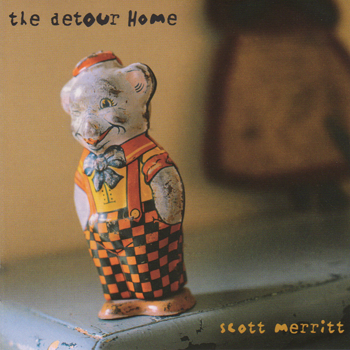
I.R.S. Records created a legal situation that prevented you from recording a follow-up to Violet and Black for a very long time. How did you cope?
Yeah, my hands were tied, but I wasn’t in much of a mood to raise a stink to be honest. I had become “Scott Merritt” in capital letters and it didn’t feel real anymore. There was a toxic feeling to it at an artistic level. So, I.R.S. had me in a position, but I wasn’t in any position to record anyway. I didn’t want to go back into that factory. I had really got to a place where it wasn’t fun and I had to promise to myself — something most of us do, but never keep — when it’s not fun to do, do something else for awhile. So, at the time, the idea of a career wasn’t very attractive. I lost my taste for it.
What wasn’t fun about being a professional musician for you?
It wasn’t the writing, because that’s just a bad habit. [laughs] It wasn’t fun dealing with the mechanics of other people’s timetables and other people superimposing trends and things on me. It was too much of a fight to be myself, but I’m proud of the records I made.
I.R.S. took over responsibility for Violet and Black from Duke Street Records midway through its release. It was supposed to be the start of a big new thing for you, but the album got lost and dropped like a stone. What happened?
Well, it was just dead. A lot of nothing happened with it. It’s ironic, but there’s a lot of irony with the business end of things. It did just sort of disappear. It was just this mountain no-one could get a foothold in. I don’t think the machine was really conducive to my work. It was just going to involve so much fighting to keep at it. I was easily discouraged and also easily distracted. So, at a certain point, you have to make peace with that stuff and I think I have.
Tell me about your transition from recording artist to producer.
The studio was an odd blessing that grew. It was a great joy to have people in the studio making music. It reminded me that “create” should be in capital letters, not “Scott Merritt.” All of a sudden, there were all these projects to do for people as a producer and studio owner. I’ve always been interested in that stuff. It’s been frustrating in the past when I was making records before when I didn’t have comprehension of how things worked and what did what. What I found was you could get more out of things if you took a hacksaw to the end of the fader dial. [laughs] So, those things were a buzz and it turned into a way to feed the family and watch my son grow up instead of hearing him grow up on the phone from wherever. It also really feels right to be of tangible service to people.
Though you stopped releasing music until the detOUr home, you still played the odd gig. Clearly, you were still drawn to expressing yourself in that arena.
I really had been slowing down. Like I said, I was always writing and trying to do new music. It just wasn’t fun knocking on doors and all that stuff. So, it wasn’t about careering. I still had the buzz. I never entirely stopped playing. The year before the new album was released, I did two gigs. Whenever I did them, I said to myself “This is the cornerstone of what it is, for better or worse.” So, yeah, I’ve still got that appreciation of that thing. But I just don’t want to fight to present it. I know it sounds pathetically simple, but I just want to write the songs and be able to walk around like a normal person and look at the guy with the jackhammer across the street and look at the lost stiletto heel in the ditch. I want to roll around and somehow filter into this thing with music in it.
You had written dozens of songs by the time you recorded the detOUr home. How did you trawl through them to determine which songs made it onto the album?
I pulled them into the boat, put them up and measured them out and decided whether I had to throw them back or not. [laughs] It was really like that. It was a really long expedition. Literally halfway through making the record, when I thought I had assembled all these songs, I looked at them as a whole and wasn’t convinced it was right. I said “Okay, this is a problem.” When I originally went to record the album, I said “I’ll take this one and do that one and put them all together.” I got a band in and rolled them around and whittled away. But I started feeling really slow and indecisive. I looked at things and couldn’t figure out why at first. One song would be from 1993 and another would be from 1997. The songs felt like they were from too broad a period of time, so I threw out half of them and used a few that remained as a starting off point. I prefer trying to make an album that hangs together as opposed to one that’s just a bunch of individual tracks.
You know when it’s right and when it’s wrong. I wanted different combinations of things track to track that felt right to me at the end. I still have this fond recollection albums that reflect a whole idea. There’s something about it that makes it feel complete — something that lasts over awhile and has a subtle flavor to it. It’s not all “salt and pepper, salt and pepper, salt and pepper.”
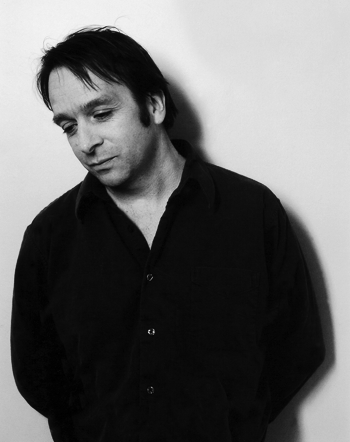
Describe the glue that binds the songs together.
“Dragonfly,” “Thimbleful” and “Beautiful Mess” were the most recent songs in that first batch. I felt a lot better about the idea that I was going to start with them and write songs in that spirit as best I can over the next two or three months. I went through my book of words which is always on the go. I also went through my catalog of improvisations and tried to find the intersect points for those two things and it felt a very natural and honest way to work.
I don’t want to stretch the relationship too much, but it came back to this feeling of Port Dover [tiny town in Ontario, Canada] in the late ‘60s and early ‘70s when they had the Summer Gardens and there would be six bands performing. We would get a car load of us teenagers together and go there to blow off the factory dust from Brantford. We hung out on the beach and maybe would go to the bowling alley. It’s the spirit of that beat-up lakeside thing. That’s not the place specifically, thought it does come up on the record a few times. There are lots of references and snapshots that I tried to put in about that place. When I went to do the other songs like “Swallowin’ the Key,” I tried to feel the same kind of spree. So, if there’s a glue — and I hope there is — it’s that feeling of going to or coming back or being there as a kid, whether it’s with your parents or as I was when I was 16 with my girlfriend, or when I went down there with the garage band to watch Rush play, or when I was trying to wrestle those hoodlum seagulls that were always puffing on cigarettes. [laughs]
The Summer Gardens were there forever. The place has since burned down, but the beach is still there. The tone of the town hasn’t changed much. Even though they’ve tried to dress it up New England-style, it always falls apart again. It’s still penny arcades, cheap sunglasses and a free beach.
The songs I heard you perform live in the mid-‘90’s seemed more story-oriented compared to the more impressionist pieces that ended up on the new record. Is that a valid observation?
I guess that’s true. It’s hard to hold these up that way. I just know when I was writing this record, words would only work a certain way for me. For me, there’s a physical feeling when things aren’t right and then there’s a point when things feel right and then they open up a bit and you feel there’s less weight on your shoulders. It’s not like great joy or pride, it’s like “Good, what’s next?” And it’s not like it’s work. It’s necessity.
One of the things I wanted to change was I no longer wanted things to be larger than life. It goes back to the idea of believability and truth. I came less and less to believe the men and women standing on top of mountains screaming about lighting their car on fire because they’re in love and wanting to go over the cliff. I know that’s an exaggeration, but there are buttons that can be pressed when you’re writing and that’s the one I was trying not to press anymore. Believe it or not, the detOUr home is a lot more personal that the majority of the last record in a lot of ways because I was working more on stories then. The new record is more “This happens, this happens, this happens and that’s all.” There’s no big kaboom.
During the ‘90s, you often performed a powerful song called “Rain Cloud” relating to being a father in a post-divorce situation. Why didn’t it make it onto the album?
I did try to cut it a few times, but I never got it to where I believed in him very much. I still play it live. I hope it will just record properly someday. I hope there’s another record that doesn’t take 12 more years to come out.
Is the song autobiographical?
The main thing for me is to always be truthful and believable. The two things often have a blurry line between them when you’re writing. Most of my songs relating to that stuff are not from the first person, but only from the fear of the first person — being afraid to be that person. They were very much related to close friends doing that dirty fight.
My personal situation is intact and in good shape. I have one son named John, who is 15 and he’s a good kid. He knows music well. He’s playing drums in a cool little band. My wife is a teacher, fighting the fight of getting kids to learn English. We’ve been married forever.
You used to tell audiences about how you’d get in your car and just drive with no particular destination in mind. I recall you mentioning ending up in an Indian reservation on one occasion. What were you searching for on these expeditions?
It was just an intuitive thing to do. It was about getting face-to-face with getting lost. The intention was to get lost on those trips. I remember the reservation. It wasn’t far from Brantford where I lived. It was ironic that sometimes I would drive way out all around this area and up towards Orangeville trying to find roads I could get lost on, and then I found I could just drive 15 minutes from home and find a place I could get lost in. When you’re lost, everything becomes a sign. I was looking for signs.
These were regular trips. I’d be going out a couple of times a week, at least in the early ‘90s. Nothing would be overnight. It was just a day here and there where I didn’t feel like playing guitar. I gradually tried to make the same experiences happen in the studio for myself and other people. Going around things is sometimes more fun than actually being in the thing. Everything becomes kind of heightened somehow when you don’t know where you are.
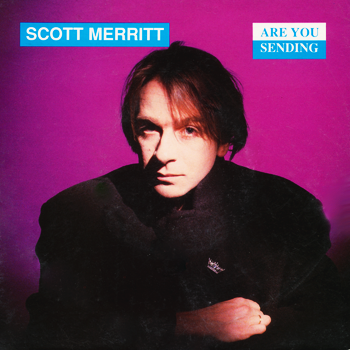
Do you still engage in these voyages?
As often as possible. A lot of time, it’s just coming home between two points. I do less of the trips where I just leave at whatever time of day or night and wander. Moving away from Brantford five years ago to Guelph [Ontario] changed quite a bit of that too. Here in this community, there’s so much I haven’t seen close up, so I’ve cut back a bit.
What brought you to Guelph after being attached to Brantford for so long?
It was just another intuitive thing. Brantford was closing in a little bit. I loved the people around me a lot and I was very attached to the sidewalks there. I tried to write about this on Violet and Black as much as I could. I was articulating things about that place. After awhile, if you do that enough, it starts to turn on you a little bit. It was getting a little dark. Brantford was the product of the post-industrial collapse and all the factories and stuff leaving town. It’s recovered a bit since then. They’ve put in a casino and tried a bunch of things, but after awhile, you write about that and realize you’re starting to live what you write. I realized it’s still in your power as to how you want to live your life. It’s been my experience that you have to take things by the horns and move on and it was time to move on. Guelph was one of the towns I often landed in when trying to get lost for some reason.
Tell me about juxtapositions at work in “Homedale Bus.” The song strikes me as harking back to some of the observations about Brantford on Violet and Black.
That’s true, for sure. It’s very much about the Port Dover thing too — the spree of it. I was thinking about the first time I saw a band there, from the point of view of the guy that walks past the factories all the time. The first time I saw a band in Port Dover is something I remember very visibly. They were called the Big Town Boys. They were an English kind of Hollies band from Toronto. Port Dover would be the town where the light is. At the time, I would have had a factory job here or there to pay for guitar strings. I’d go into the factories for the summer or work on the weekend in a bakery pan assembly place. There was a sandpaper factory I did a stint in too. I also worked in a Massey Ferguson combine plant.
I remembered the trip on the Homedale bus. I wanted to remember that feeling of my first guitar with the sap coming out of the neck in the spring, when you’re going to play with the first band you’ve ever played with. The drummer was across town and I had to take the bus to go across the factories. That was the spirit I wanted to remember, instead of concentrating on darkness and stuff. I didn’t want to do that to people anymore.
Little has been written about your musical background. What can you tell me about your beginnings as a musician?
I knew early on — way before I could play an instrument — that music really did fill a hole that was not superfluous at all. Basically, I’m self-taught. I learnt how to play bar chords once from a guy up north. It was like getting religion in a way. I gradually played with garage bands around town in grade five or so. The very first band I started gigging around town in was called Max Rat and this was before Max Webster. Even at that point, we went through a couple of different drummers and the whole predictable band things were happening. We’d play shows a lot for $35 a night at grade school graduations. We even played a blood donor clinic two or three times. We’d do “Purple Haze” by Jimi Hendrix or a Black Sabbath tune while watching the bags fill up with blood. The weirdest gig I played was when I was 15 with Max Rat poolside at a nudist colony. I fell in love so many times that night. It was a dream gig. [laughs]
We went into this iffy zone where everyone was finishing up high school and I’d notice that people actually wrote songs, rather than just sitting on a riff for five minutes and yelling out whatever comes to mind. That was a gas and a lark and fun for sure though. So, I grew a beard so I could get into coffeehouses. I looked just old enough so people could take me seriously as a songwriter. [laughs] I did a stretch in the coffeehouses with those songs that collected over that period of time and that towed me towards recording, which landed me at Grant Avenue Studios because it was the most songwriter-friendly place to be.
How have you evolved as a vocalist and musician in the past 12 years?
I think I’ve really tried to find my own voice. I knew very early on that I always felt the most rewarded when things were coming from an honest place. I’ve also tried to be more natural and hopefully believable. Along the way, I went into the technical things a bit more, but I’ve never got too bogged down by that stuff. I’m curious about studio things, chord progressions and curious voicings that make me feel a certain way, but I really don’t think about those things too much on a technical level. I think I’ve still got a long way to go.
Is it easier to produce others than yourself?
I think that’s true, yes. Forest and trees, you know? Having said that, it would be really hard to go back to having someone else produce for me again. I can’t imagine doing it any other way, but it’s hard work. However, I have to do it and learn how things like the board operate and how this machine does this and that.
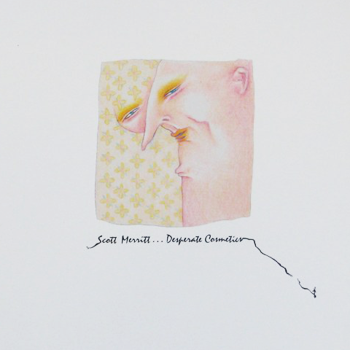
Let’s go through your previous records and have you provide any reflections that come to mind. First up is Desperate Cosmetics. [1979]
I had such a great time making that record. At the time, I was pretty convinced it would be something for people who came to the live shows who were responding to my childish sense of humor and goofiness. There’s a fair amount of goofiness on that record. There’s some things I really like on it. It was the first time I had been to Grant Avenue Studios, so I was sucked into the undercurrent of everything that was starting to go on there. So, there’s a little bit of experimentation on there, but not a whole lot. I was being careful.
I wouldn’t say I’m ashamed of it, but I really couldn’t listen to it in its entirety and be comfortable. I guess it’s just too long ago and it’s like listening to a different guy. The only that makes me uncomfortable about it is it’s like listening to your voice on a tape recorder for the first time and saying “I don’t sound like that!” It really is kind of like that. I hardly recognize the voice. I hear little elements and know where they wanted to go. The record certainly served me well though.
I’ve actually considered the idea of taking some of those tracks and re-singing them or rewriting a lyric here and there and reissuing it. Some of those pieces really had a kind of “on the edge” spirit to them that I really like — musically speaking for sure. He was an excited guy to be there.
I thought it was brave to start the record with a solo guitar piece.
That was an accident. It was one of those things where I tuned the guitar to play a certain harmonic. I can’t remember what the sound was going to be used for, but I just started noodling while Dan [Lanois] was sitting up a mic. Instead of playing this nice, long harmonic with it, I started bashing really fast. Dan said “Let’s do that instead!” So, we did and that’s what ended up in the front of that record.
What was it like to work with Lanois at such an embryonic stage in both of your careers?
It was great. Dan is a really great musician and has a great sense of really being with you when are recording. He’s not at all distracted and is quite relaxed, yet focused on what you are doing. He’s also very curious about what you want to do. I took it for granted at the time because it was the first studio I had been in. In retrospect, I realize that I’ve really missed that sort of focus from almost everyone I’ve worked with since as an engineer. You would turn around and blink and there was another mic up in a different position somewhere, because he was trying something new. He was just really focused on getting the most out of you. It’s a big lesson I’ve tried to remember when I’m working with other people myself. When you’re producing, you have to feel comfortable being like that for a long period of time. You have to be really dedicated.
Next up is Serious Interference. [1983]
It was more of the same experience, but working with Greg Roberts instead. I was doing more with the studio at home. I was starting to really piece together four tracks at home and a lot of those experiments were brought into the studio and being integrated into the folk songs. Putting sounds into songs is what I was excited about at the time. I’d record an episode of some television show, cut it up and get one of the characters to say something five times. I’d make light work out of it by doing musique concrete stuff. I’d cut up tape, splice it together and play my songs in the room with these other things going on. I was trying to find ways to make that work with these little songs from the folk club. Sometimes it would be a Russian choir, sometimes it would by pygmies.
Let’s move on to Gravity is Mutual. [1986]
Gravity was the first time I’ve given over the producer reigns to someone else entirely. Roma Baran produced it and it was the first official record I did for Duke Street Records, so there was a budget. It wasn’t another $3,000 studio bill. So, I had the luxury of traveling around a bit and working with players I would never have dreamed of working with. During that period, the folk club gigs turned into club gigs with a band. The album represented the first recording of that band.
What I remember most from that project was the trip Roma and I took to an experimental farm in Urbana, Illinois during a side trip in between a couple of sessions. This was during the trip to work with Adrian Belew. We were told by people around town that there were these cows at the farm that literally had windows in their sides — living cows. Roma has a real sense of adventure, so we went up there and had a look around. There were no cows in the field at all. But there was this barn and we went to the door and it was unlocked. We went in and it was this huge, complex place. I remember seeing rows and rows of these cows at feeding stalls, each with portholes in their sides with plastic plugs. One of them had no plug at all, so you actually saw nothing but a hole in its side. You could see inside to its stomach.
Apparently, they were experimenting with feed grain. They were developing a concoction of feed and nutrients and wanted to check it out through the various stages of the cow’s stomach. They wanted to see how much of it was being absorbed into the cow’s body by measuring how much of it was left in this stomach and that stomach. It was science. [laughs]
We ran into the keeper as he was coming down the ramp from the barn. Roma and I were holding our stomachs, wondering how we could possibly ever eat anything ever again. The keeper said “Can I help you?” We told him we’d seen the cows and were wondering what the fuck it was all about. He explained it to us. I said “How come some cows have plugs and some don’t?” and he said “No, they all got plugs.” I said “No, there’s one without a plug in there.” He said “No, they all got plugs, but sometimes they blow a plug. They’re all supposed to have a plug. If they blow a plug, it’s an awful job to get that plug back in.” I said “Well, you got one.” I remember his expression, it was like “Oh my God, I gotta go back in there and put the plug in.” [laughs]
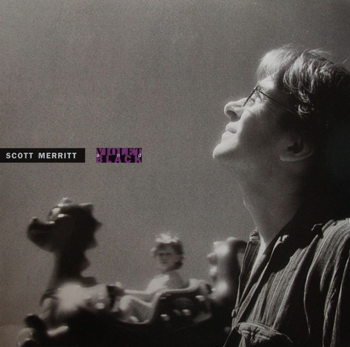
Last up is Violet and Black. [1989]
I remember mostly being in Los Angeles when recording it. Most of it was recorded at Arthur Barrow’s place. I was alone for a month on end, just chiseling away at the songs. I don’t really regret it too much — I really like Arthur and appreciated his work — but I left a large part of the band behind for a lot of that album. It was the first time I had spent that much time in Los Angeles. It was strange writing a record about Brantford while wandering the streets of Los Angeles. I’m proud of the record. I knew at the time I had done the best I could possibly do. I felt like I was given a really good shake by the record company in that they let me do what I wanted to. But I remember feeling one night towards the end that although I thought the record was okay, I didn’t think it was going to very much for a record company. That’s what being in Los Angeles can do to you.
What’s the story behind the detOUr home’s cover art?
You mean the bear? I think he looks a little like me. I think I had a pair of pants like that once. [laughs] We collect stuff. “Beautiful mess” talks about that junk. I love the old lost stuff you find again. I like going to nostalgia shows where they have all these collections of Beatles cards, old toys and other collector’s stuff for sale. You find beautiful things to look at sometimes and occasionally there will be something I swear has an electrical current to it — you touch it and you’re right there in its time and place. So, the cover is my nod to that stuff.
Tell me about the angel scribbles in the new CD’s booklet.
Oh, those guys. There are two characters and they keep coming back in different versions. One is carrying sticks and the other has wings and is very much the same — overworked. When they’re really lucky, they intersect with each other and become this other creature. The characters are primitive and the mouth on both of them is full of teeth. Their mouths are coming right off their heads and their eyes are big. Some of them are very tired and sleep deprived. It’s just a personal thing. I’ve actually been doing a lot more painting lately than I ever would have guessed. In the last year or so, I’ve been feeling more inspired to scribble more. It’s great to have another distraction other than beeps and tones.